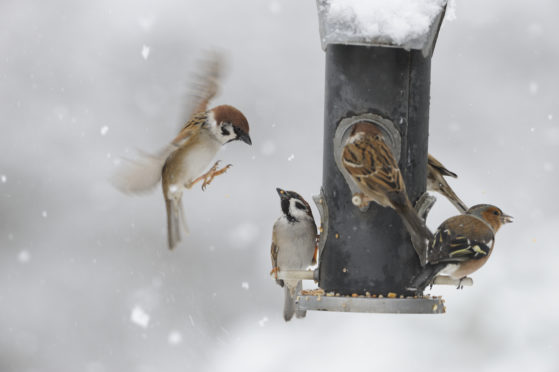The harsh conditions of the Beast from the East have been blamed for a decline in the population of woodland birds in Scotland.
Official statistics published by Scottish Natural Heritage (SNH) highlight that while numbers for farmland and upland birds remained stable between 2017 and 2018, woodland birds decreased by 12%.
The harsh winter, including the Beast from the East which swept through the country in February and March in 2018, is thought to be a factor in the short-term decline.
Experts have asserted that extreme weather is known to affect survival rates of some resident birds, including woodland species, over the winter.
Wrens, bullfinches and goldcrests were the species most affected while robins, treecreepers, great spotted woodpeckers and lesser redpolls also experienced declines.
SNH ornithologist, Simon Cohen, said: “In the long-term, many of our woodland birds have been thriving as tree cover in Scotland has increased, so it’s striking to note the recent dip in the fortunes of this group.
“Winter can be a tough time for birds and it’s likely that the freezing temperatures and snow we experienced during the Beast from the East last year had a negative impact on many species.
“Interestingly, others such as great tits, blue tits and coal tits seem unaffected and it’s possible that they have benefited from garden feeding.
“People can do their bit to help wildlife during the colder months by putting out extra food and providing shelter in their gardens over winter.”
The longer-term trend for woodland birds is positive, showing an increase of 58% between 1994 and 2018.
Some of the species on the increase include chiffchaffs, great spotted woodpeckers, blackcaps, great tits, bullfinches, lesser redpolls and tree pipits.
Over the same period, farmland birds including goldfinches, whitethroats and reed buntings have increased by 12% while upland birds have decreased by 15%.
Chris Wernham, head of the British Trust for Ornithology in Scotland, said: “It is fascinating to see the short-term decline of many resident species, likely as a result of the Beast from the East, in the context of long-term population change.
“Our ability to report changes in such detail is a testament to the power of citizen science, and highlights the valuable contributions of volunteers throughout Scotland.”
